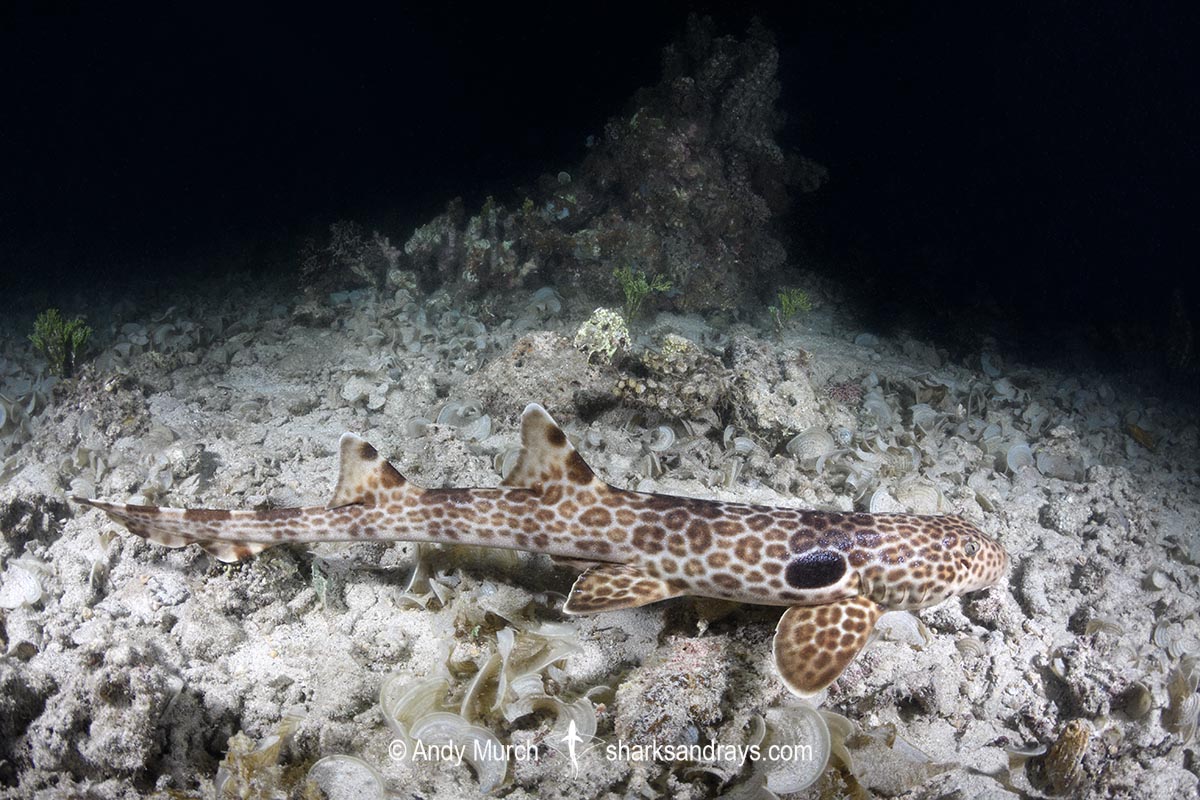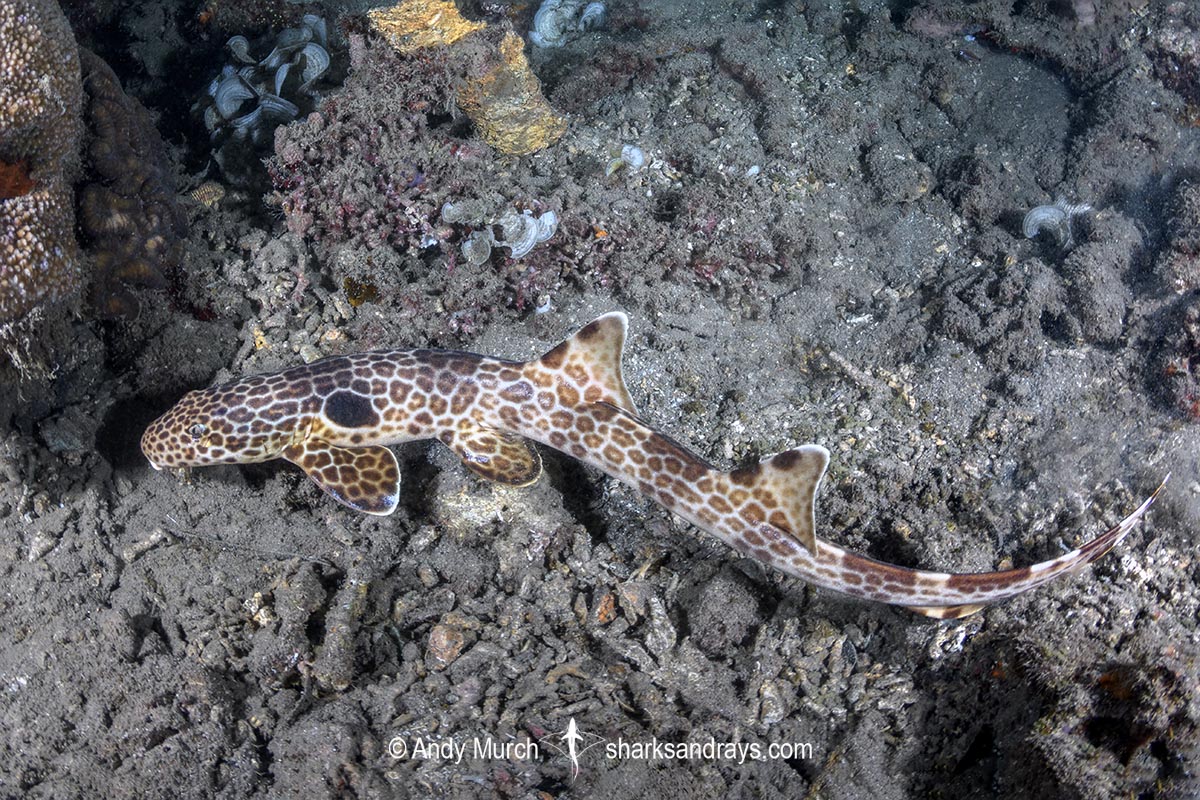Common names
Leopard Epaulette Shark, Milne Bay Epaulette Shark, Michael’s Epaulette Shark.
Binomial
Hemiscyllium michaeli.
Synonyms
None.
Identification
Elongated, slender body. Well developed pectoral and pelvic fins on fore-body (used partially for walking). Two equally sized dorsal fins on rear-body. Tail long and straight with upper and lower caudal lobes on underside. Sub-terminal notch present.
Dorsal coloration yellow/brown with a dense pattern of leopard-like reddish-brown to dark brown spots.
Large, well-defined, white-ringed, black ocelli above pectoral fins. Ventrum pale.
Size
Maximum size at least 70cm. Size at birth estimated to be ~15cm.

Conservation Status
VULNERABLE
The Leopard Epaulette Shark is threatened from artisanal fishing throughout its range as well as habitat loss and degradation due to climate change and coastal development in more than 20% of its range.

Habitat
Shallow tropical coral reefs and mangrove. From the intertidal zone to 20m, on or near the bottom.
Distribution
Eastern end of Papua New Guinea; mainland and offshore islands.
Reproduction
Oviparous. Reproductive cycle poorly known.
Diet
Unknown.
Behavior
Nocturnal. Rests by day in crevices on the reef or under corals. Actively forages at night on shallow reefs and mangrove.
Reaction to divers
If not approached too closely, it is sometimes possible to watch this species hunting on the reef during night dives. Usually disappears into the reef when spotlighted.
Diving logistics
Leopard epaulette sharks is easily encountered during night dives at the house reef and the surrounding bay adjacent to Tufi Dive Resort.
They can also be found further south in Milne Bay, and east of the mainland at the Conflict Islands, but the latter do not have any diving infrastructure.








